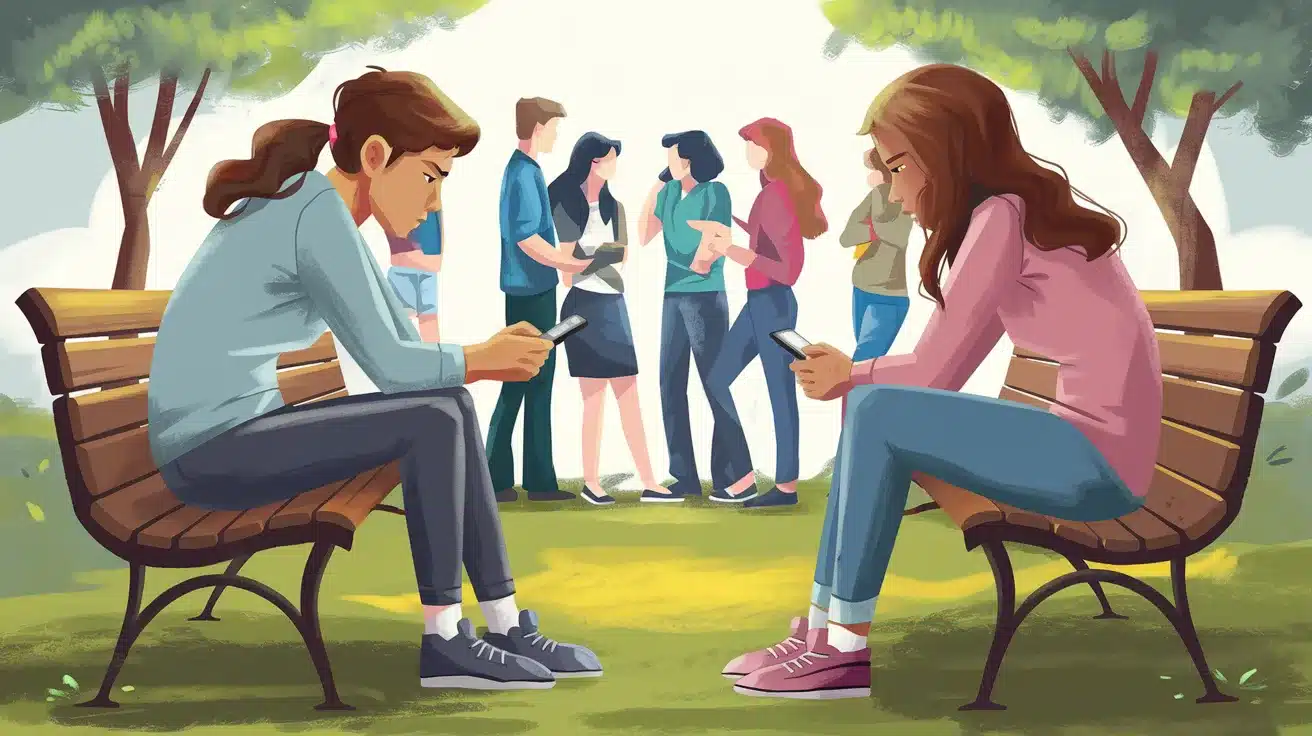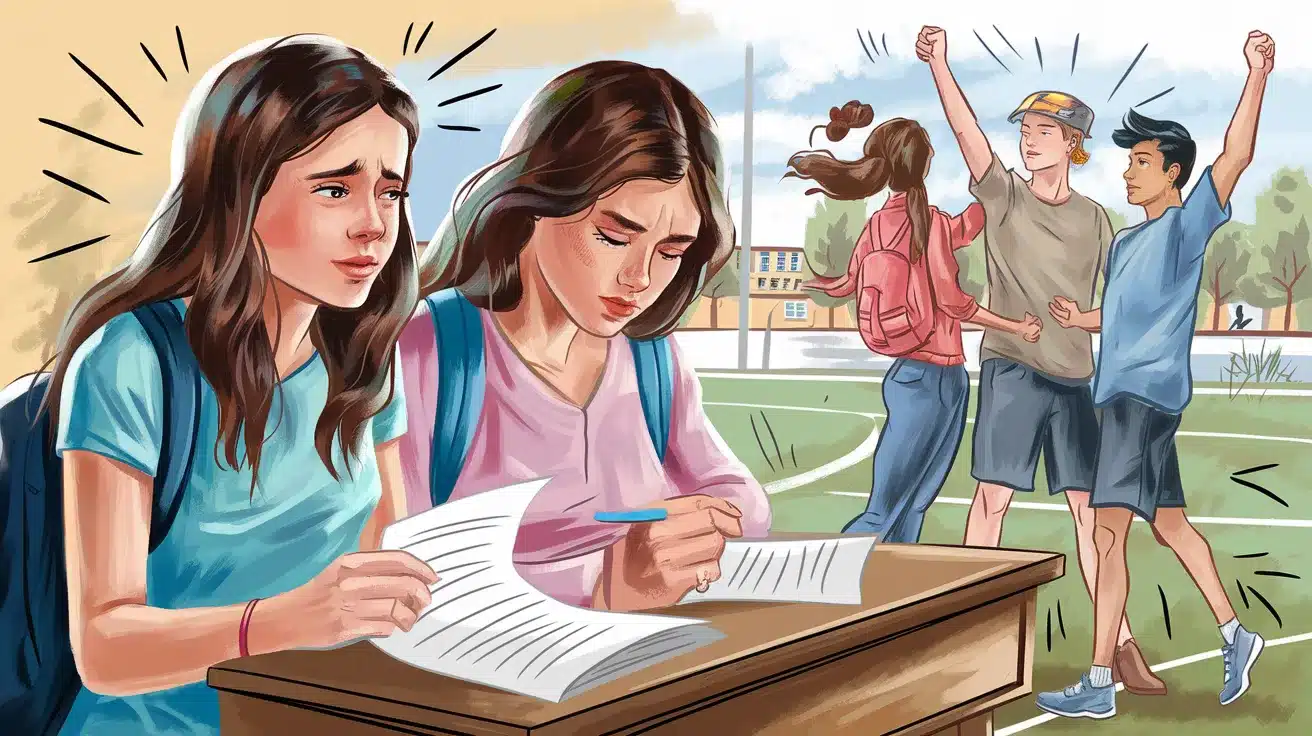Have you noticed how teen friendships can change a person’s life path? Most adults can name at least one friend who helped them become who they are today.
These early bonds do more than fill lunch tables. They teach trust, build social skills, and help teens find their place in the world. Research shows that strong teen friendships boost mental health and create lasting impacts.
Want to know why these connections matter so much? Or how to help the teens in your life make healthy ones?
This post breaks down the science behind teen friendships, shares tips for parents, and explains what makes these bonds so special during the teenage years. Let’s look at how these important relationships work.
Types of Teen Friendships
Teen friendships come in many forms. Each type offers different benefits and plays a unique role in a young person’s growth.
1. School Friends: These are the people teens see daily. They share classes, projects, and school events. School friends help teens deal with academic stress and make school life more fun. They often form bonds based on shared classes or activities.
2. Childhood Friends: Some teens keep friends from their early years. These long-term bonds include shared memories and family connections. Childhood friends know each other’s history and have seen each other grow and change over time.
3. Activity-Based Friends: These friendships form around sports, clubs, or hobbies. They share common interests and goals. These friends push each other to improve skills and try new things. The shared passion makes these bonds strong.
4. Online Friends: Many teens now build real connections with people they’ve never met in person. These friendships cross geographic limits. Online friends often connect through gaming, social media, or interest groups.
5. Close/Best Friends: These are the deep connections marked by trust and openness. Best friends share secrets, give honest feedback, and offer support during tough times. These relationships teach teens about loyalty and honest communication.
6. Group Friends: Some teens feel most at home in small groups. These friend circles create mini-communities with their own jokes, traditions, and hangout spots. Group dynamics help teens learn to work with different personalities.
The Role of Friendships in Teenage Development
The teenage years serve as a key time when friendships shape who we become. These relationships do far more than just fill social calendars – they help build the foundation for healthy development.
1. Emotional Support and Mental Well-Being
Teen friendships offer a safe place to share feelings and troubles. Friends often understand teen problems better than adults do. They listen without judgment when school gets tough or family issues arise.
This support helps teens handle stress and feel less alone. Studies show teens with good friends have lower rates of sadness and worry. Having someone to text during hard times makes big problems feel smaller. These bonds create a safety net during the ups and downs of teen years.
2. Building Social Skills and Confidence
Each friend interaction teaches teens how to connect with others. They learn to start talks, listen well, and read social cues. Positive feedback from friends builds self-worth and helps teens feel valued.
These skills last into adult relationships and work settings. Teens who practice social skills with friends often feel more sure of themselves in new groups. These early friendships help teens find their voice and learn to speak up.
3. Learning Conflict Resolution and Empathy
Friendships teach teens how to work through problems. When friends disagree, they must find ways to fix things or risk losing the bond. This teaches the value of seeing other viewpoints.
Teens learn to say sorry, make up, and move past small issues. They start to understand how their actions affect others’ feelings. These lessons in handling conflicts help teens build stronger bonds that can survive tough times.
Challenges in Teen Friendships
Teen friendships, while valuable, come with their share of difficulties. These challenges test bonds but also offer chances for growth and learning.
1. Peer Pressure and Influence
Teens often feel pulled to act like their friends. This pull can lead to both good and bad choices. Good friends might push each other to study, try out for teams, or follow school rules.
But some might press others to skip class, try harmful substances, or break rules. Teens walk a fine line between fitting in and staying true to their values.
Parents can help by talking openly about these pressures without judgment. Teens who feel secure in their home life often find it easier to resist harmful influences.
2. Conflicts and Misunderstandings
Teens can be quick to take offense and slow to forgive. Small issues like forgotten texts or lunch table seating can blow up into major problems.
Miscommunication happens often, especially in group chats where tone gets lost. Many teens lack the words to express their feelings clearly.
These conflicts, while painful, teach important skills about working through problems. Teens learn that good friendships can survive disagreements when both sides talk honestly.
3. Jealousy and Competition
Friendship groups often face issues of jealousy. Teens might compete for grades, sports spots, attention, or status. New romances can strain friendships when time gets split.
Academic success can create tension when one friend outperforms another. These feelings, though normal, can harm trust if not handled well. Teens benefit from learning to celebrate friends’ wins rather than seeing them as personal losses.
4. The Impact of Social Media on Friendships
Social media adds new layers to teen relationships. Online posts can cause hurt feelings when someone gets left out of photos or events. Teens often judge their worth by likes, comments, and follower counts. The pressure to look perfect online creates stress.
Group chats never truly “close,” meaning teens feel always on call to respond. Screen time can replace in-person bonding that builds deeper connections. Parents can help by setting healthy tech limits and encouraging face-to-face time with friends.
How to Build and Maintain Strong Friendships?
Building and keeping strong friendships takes work. Teens who put in this effort gain valuable support systems.
Good listening forms the base of solid friendships. Teens should focus when friends speak and ask follow-up questions. Small acts matter – texting after a friend’s big game or saving a seat at lunch shows care.
Trust grows through kept promises and secret-keeping. Once lost, trust takes time to rebuild. Friends who stand up for each other when others gossip build lasting bonds.
Common interests connect people naturally. Joining clubs or teams helps teens find others with shared passions. These activities provide built-in time together and topics to discuss.
Healthy limits strengthen friendships. Good friends respect when someone needs study time or family time. No single friendship can meet all needs.
Conflict skills keep friendships going through tough times. Face-to-face talks work better than text arguments. Using “I felt” statements instead of blame helps solve problems without causing more hurt.
The Lifelong Impact of Teen Friendships
Teen friendships create ripples that extend far beyond high school years. The connections formed during this key time often shape who we become as adults and how we relate to others throughout life.
The friends we make as teens influence us in several important ways:
- Identity formation: Teen friends help shape our sense of self through feedback and shared experiences
- Lasting connections: Many people maintain lifelong bonds with friends from their teenage years
- Relationship skills: Social abilities learned with teen friends transfer to adult relationships
- Friendship patterns: Early friendship experiences often set templates for future relationship choices
- Mental health foundation: Strong teen friendships correlate with better mental health outcomes in adulthood
The people who know us during these formative years often understand parts of us that even later friends may not fully grasp. These early bonds create a sense of being truly known that many people cherish throughout their lives. The lessons learned through navigating teen friendships—how to trust, how to resolve conflicts, how to support others—become tools we use in all future relationships.
Conclusion
Teen friendships matter more than we often realize. They shape who we become.
These early relationships teach life skills that school lessons cannot. They show teens how to listen, solve problems, and support others during tough times.
Not all teen friendships last forever. Some fade after graduation, while others continue for decades. Either way, their impact remains.
Parents play a key role by creating space for these bonds to grow. This means offering rides to meet-ups, welcoming friends into your home, and understanding when teens need time with peers.
The social skills gained through teen friendships build a foundation for future relationships. These early connections help young people learn who they are and what they value in others.










